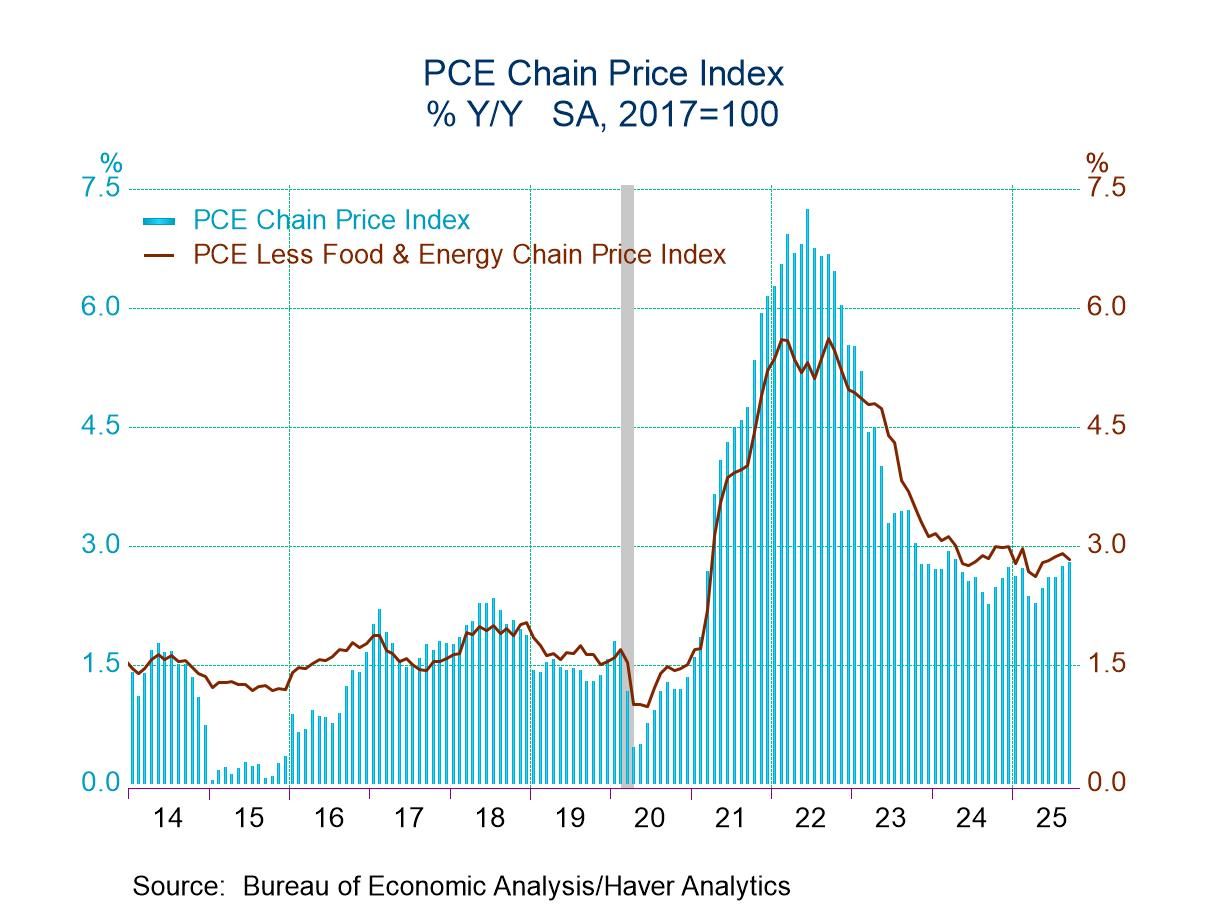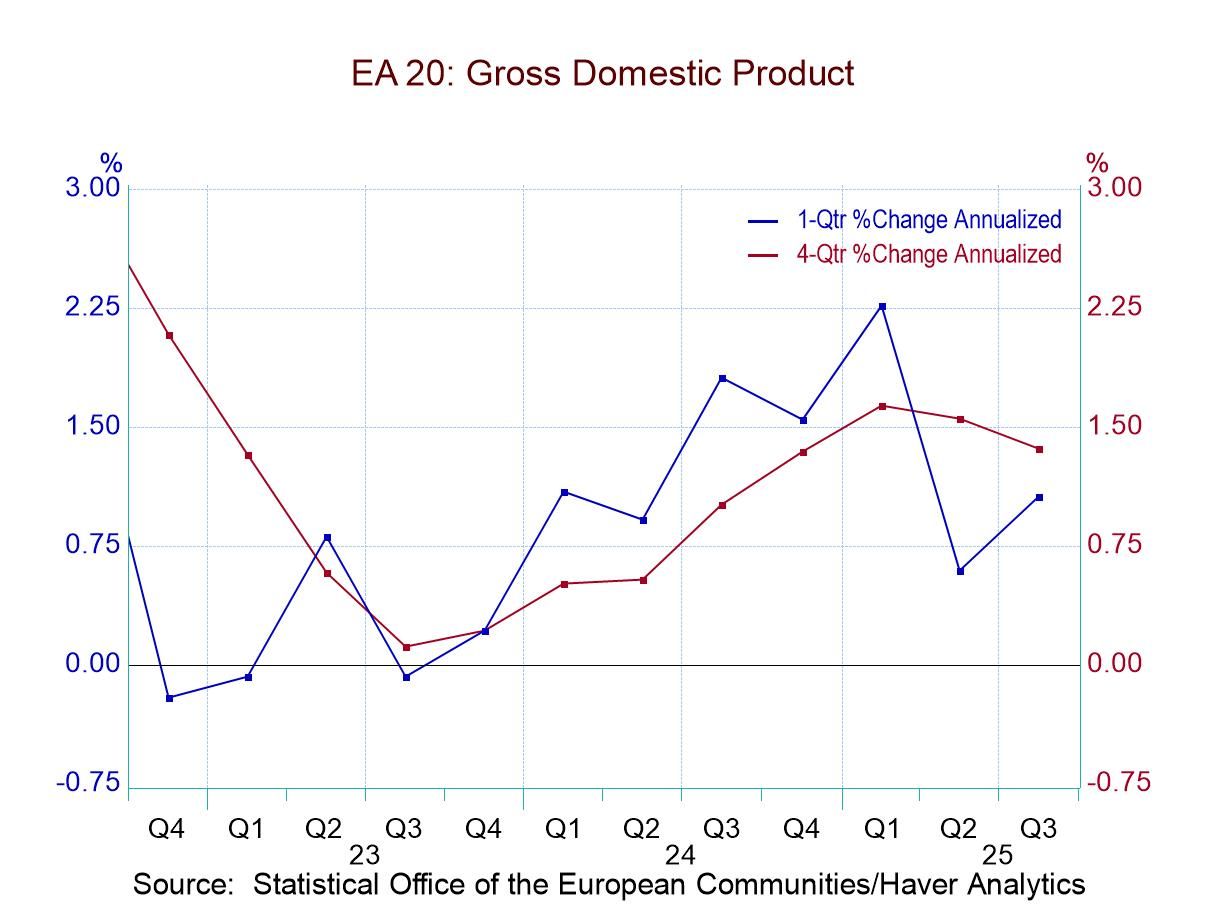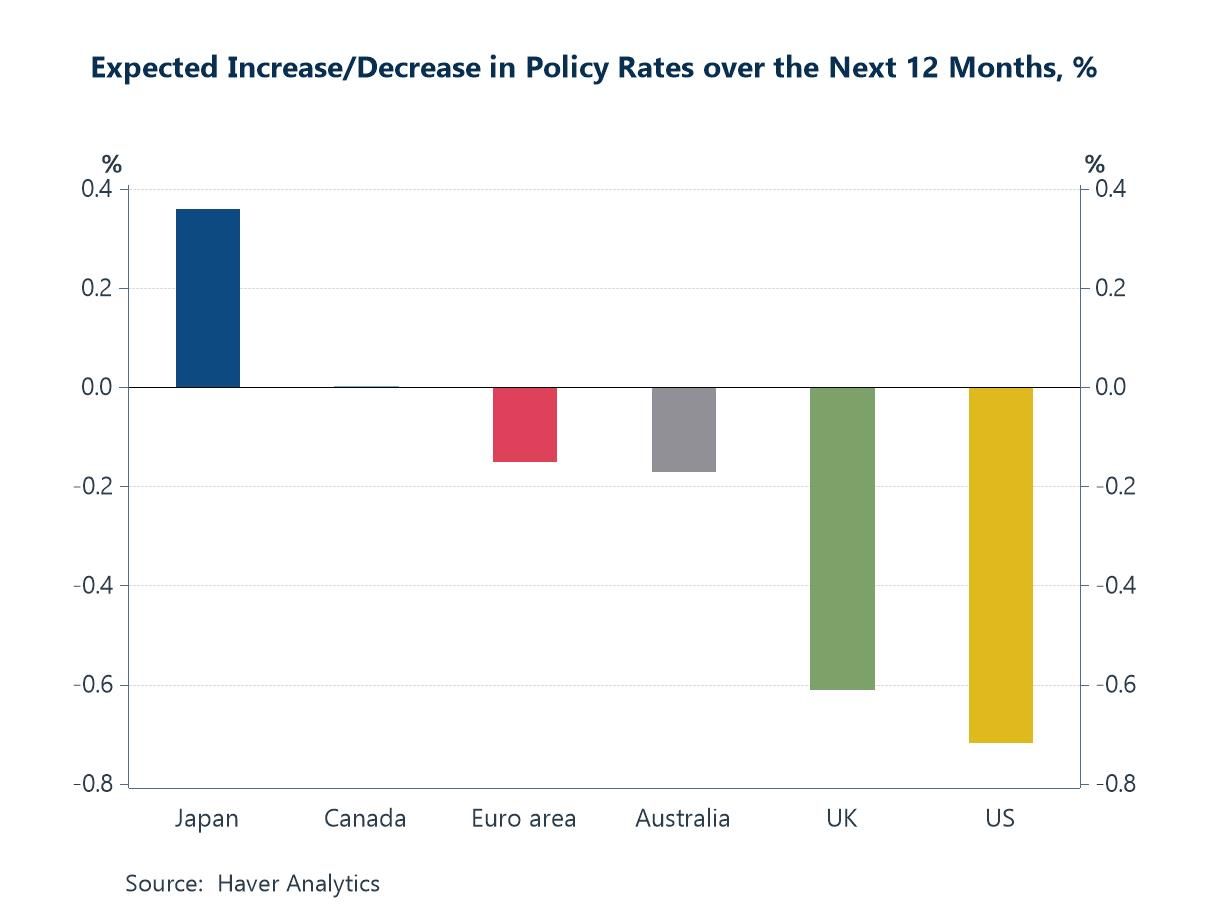 Global| Mar 12 2009
Global| Mar 12 2009U.S. Businesses Shed Inventories at a Rapid Rate
by:Tom Moeller
|in:Economy in Brief
Summary
Reduced inventory accumulation has played a large role in the current downturn in economic activity. Business inventories dropped 1.1% m/m during January and the decline marked the fifth consecutive reduction. Over just the last three [...]
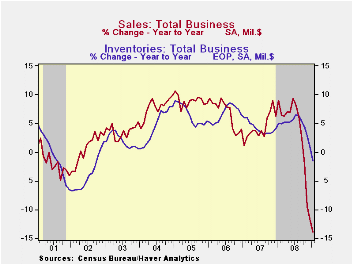
Reduced inventory accumulation has played a large role in the current downturn in economic activity. Business inventories dropped 1.1% m/m during January and the decline marked the fifth consecutive reduction. Over just the last three months inventories have fallen at a 14.1% annual rate, a record for the series which dates back to 1980.
The inventory correction is in response to the downturn in total business sales (not to mention the weakness in pricing). Sales fell 1.0% during January and they were down at a 34.0% annual rate over the last three months. Manufacturers, wholesalers and retailers have suffered with retail sales down at a 15.8% rate during the three months ended January. Wholesalers' sales dropped at a 43.4% rate, though that was inflated by the decline in oil prices. Factory shipments dropped at a 37.8% rate.
Retailers' inventories cratered 1.7% during January, not much
different from the December drop. Emphasizing how little inventories
are wanted, the three-month rate of decline soared to an 18.2% annual
rate, a record. As might be expected, the motor vehicle sector has shed
lots of unsold vehicles from inventory. They're down at a 31.2% rate
since the fall. But it's outside the auto sector where the inventory
decumulation has been notable. Nonauto retail inventories fell 0.5% in
January and at a record 11.8% annual rate during the last three months.
Furniture inventories have been dropped at a 28.8% annual rate during
the last three months while there's been a 13.7% rate of inventory
reduction amongst general merchandise retailers. Rounding out the
picture is a 7.7% rate of decline amongst apparel sellers. These
inventory cuts went some distance in reducing the level of retail
inventories relative to sales, but at 1.55 the ratio was still quite
elevated versus the lows of 1.45 last year.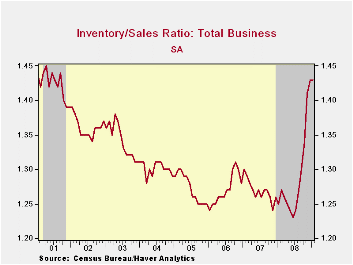
Wholesale inventories dropped 0.7% during January but the decline left them still up 1.0% from last year. To figure whether there still is much of a correction yet to go in this sector it's best to take a look at what is happening excluding petroleum. The pipeline inventory swings can be dramatic and thus distort the overall picture. Indeed, the figures less oil indicate that a correction of inventories has begun at the wholesale level. Nonoil wholesale inventories dropped 1.1% during January for the fifth consecutive monthly decline. The 11.9% rate of decline over the last three months is striking and a record.
Factory inventories, reported last week, fell sharply again. The 0.8% monthly decline was the fifth in a row.
Input and output inventory dynamics from the Federal Reserve Bank of San Francisco is available here.
| Business Inventories (%) | January | December | Y/Y | 2008 | 2007 | 2006 |
|---|---|---|---|---|---|---|
| Total | -1.1 | -1.6 | -1.5 | 0.6 | 4.1 | 6.5 |
| Retail | -1.7 | -1.5 | -5.2 | -3.2 | 2.9 | 3.5 |
| Retail excl. Auto | -0.5 | -1.2 | -2.7 | -1.8 | 2.9 | 4.9 |
| Wholesale | -0.7 | -1.5 | 1.0 | 3.4 | 5.9 | 8.3 |
| Manufacturing | -0.8 | -1.9 | 0.0 | 2.1 | 3.7 | 8.2 |
Tom Moeller
AuthorMore in Author Profile »Prior to joining Haver Analytics in 2000, Mr. Moeller worked as the Economist at Chancellor Capital Management from 1985 to 1999. There, he developed comprehensive economic forecasts and interpreted economic data for equity and fixed income portfolio managers. Also at Chancellor, Mr. Moeller worked as an equity analyst and was responsible for researching and rating companies in the economically sensitive automobile and housing industries for investment in Chancellor’s equity portfolio. Prior to joining Chancellor, Mr. Moeller was an Economist at Citibank from 1979 to 1984. He also analyzed pricing behavior in the metals industry for the Council on Wage and Price Stability in Washington, D.C. In 1999, Mr. Moeller received the award for most accurate forecast from the Forecasters' Club of New York. From 1990 to 1992 he was President of the New York Association for Business Economists. Mr. Moeller earned an M.B.A. in Finance from Fordham University, where he graduated in 1987. He holds a Bachelor of Arts in Economics from George Washington University.



